Photo: Russell Webster
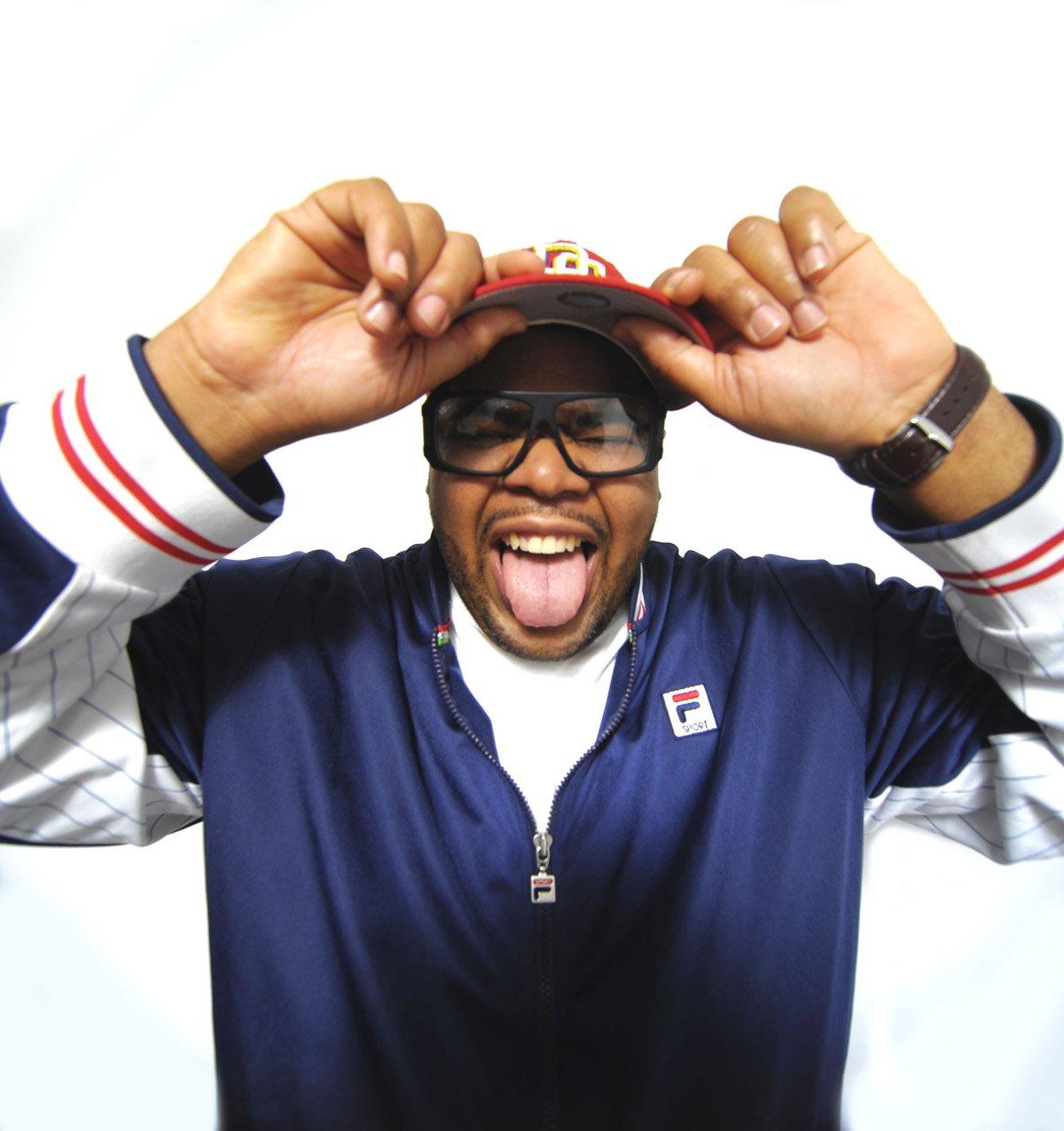
Chucky Thompson
news
Producer Chucky Thompson Revisits 25th Anniversary Of Mary J. Blige's 'My Life' & Creating The Bad Boy Sound
Chucky Thompson talks to GRAMMY.com about commemorating the 25th anniversary of 'My Life,' his secretive work on Diddy's newly developed Love Records, and how he's paying respect to his D.C. go-go roots
The massive success of Mary J. Blige's triple platinum 1992 debut What's the 411? brought along matching egos. When the GRAMMY-winning "Queen of Hip-Hop Soul" started to plan her follow-up album, 1994's My Life, she kept turning down producers who raised their fee; Chucky Thompson got one placement and was willing to do it for free.
Thompson's initiative would go on to change the sound of '90s hip-hop and R&B. His ear for slickly layering recognizable classic soul/R&B samples under hard beats prompted then Uptown Records executive Sean "Diddy" Combs—then Puffy—and Blige to let the then 24-year-old multi-instrumentalist to produce over half of her GRAMMY-nominated masterpiece, now the subject of an Amazon Prime documentary.
A native of Washington, D.C., Thompson got his start on congas in go-go music legend Chuck Brown band, The Soul Searchers. The once aspiring artist manager became a founding member of Diddy's in-house production team at Bad Boy Entertainment, The Hitmen. Thompson was responsible for singles like The Notorious B.I.G.'s "Big Poppa," Craig Mack's "Flava in Ya Ear," Total's "Can't You See," and Faith Evans' "Soon As I Get Home." The skilled musician would also work with Nas, Raheem DeVaughn, Jennifer Lopez, Snoop Dogg, Frankie, Emily King, and TLC.
These days, Thompson has evolved from producing and writing music into developing film projects and mentoring aspiring talent. He took some time from a session recently to chat with GRAMMY.com about commemorating the 25th anniversary of My Life, his secretive work on Diddy's newly developed Love Records, and how he's paying respect to his D.C. go-go roots.
How did you end up landing so many credits on the My Life album?
Mary is the reason that I signed with Bad Boy. I had two situations: Hiram Hicks and Puff. Hiram could get me TLC, but Puff could get me Mary. We had a mutual friend, and I was sending tracks. One track was supposed to get sent to a group in D.C. that I'd done a remix for. It was "Be With You." I was only contracted to do one song, but that one song pulled us into a different room outside of the What's the 411? album. She loved it and did something amazing on that record.
She was coming from a triple platinum success, and a lot of the producers and people that were part of the debut album were submitting astronomical budgets [for the second one]. I could understand, but Mary wasn't with it. I give lots of thanks to Puff and Mary for even trusting me because it was a brand new situation. I didn't know Puff or Mary like that, but that one session for "Be With You" allowed us to feel the energy. She came to me and Puff to ask if I'd like to do the full My Life album. Man, I wanted to do backflips when I heard her say that. It just lined up. Certain things are just life and God; that situation came from me being in the right place at the right time.
GRAMMY Rewind: Watch A Golden Mary J. Blige Win Best R&B Album In 2007
Who's responsible for Mary J. Blige becoming a songwriter?
Mary and Puff's relationship is where a lot of the lyric writing came from. I was pretty much just an instrumentalist. I'm just happy that they trusted me enough to give them a blank canvas, but the lyrics had nothing to do with me. I didn't know exactly what was going on with her; the documentary actually showed me a lot about what was going on.
Just like the My Life album is medicine for a lot of people, as we were pulling in Curtis Mayfield and Barry White samples, that was medicine for Mary to expose herself the way that she did. She's a soldier. Imagine writing a letter talking about the most personal stuff, then it ends up on MTV. She was in the studio crying a couple of times, but she'd wipe the tears and go back to work. I'm just happy that things turned out the way they did.
How did you feel earning a GRAMMY nomination for Best R&B Album in 1996?
I'd just signed my deal at 24 years old. At that particular time for everybody, it was crazy energy around. We were working on B.I.G.'s next project, Mary's project, and not quite Faith Evans just yet, but she was in the room. Getting that GRAMMY nomination almost made me feel like anything was possible. It just solidified all of the things that were happening to me.
"My Life" was never a single, so that lets you know what type of turmoil and twist that was happening. Mary's fans and the people that loved her gave it so much love, it became this underground classic. It wasn't even marketed and promoted like that. I was buggin' that the album was certified triple platinum like What's the 411? When I got the nomination, I was over the top in the quasars, man. Getting a GRAMMY anything is the biggest deal in music.
<style>.embed-container { position: relative; padding-bottom: 56.25%; height: 0; overflow: hidden; max-width: 100%; } .embed-container iframe, .embed-container object, .embed-container embed { position: absolute; top: 0; left: 0; width: 100%; height: 100%; }</style><div class='embed-container'><iframe src='https://www.youtube.com/embed//EeaCZt31hVA' frameborder='0' allowfullscreen></iframe></div>
What was a typical session like whenever The Hitmen made records?
My first real session with Bad Boy was with [producer] Easy Mo Bee. Puff asked if I wanted to go to the studio and hang out with him. I'd never met him or anything. I showed up at the session; he had a guitar there, and I just started playing along with what Easy Mo Bee was doing. He heard it and immediately wanted to record it. That became the guitar parts on "Ready to Die." That was always the energy.
Puff would give us money to go buy records; we went and found the record that became "Who Shot Ya?" People don't know that "Who Shot Ya?" was an interlude for the My Life album. The reason why B.I.G. didn't get on the record is because we snatched him up off the block in Brooklyn on a Friday. He comes in and raps; it was so gangsta and dope, but the problem was because of what he was saying on that particular verse, they would've had to place a parental advisory label on Mary's LP. So we switched up and put Keith Murray on it.
A typical session was brotherhood, and that's how we kick it with each other to this day. I keep in contact with everybody: Nashiem Myrick, Stevie J., Mario Winans, Harve Pierre, Rashad "Tumblin' Dice" Smith. We talk damn near every month at least and stay connected.
What was special about working on Usher's debut project?
When I was in the position to sign this deal with Puff, I just started working on a bunch of stuff. I didn't really have an artist in mind when I did "Think of You." Black Moon had used Ronnie Laws' "Tidal Wave" sample, so I took the idea and freaked it into a song. I sent it up to Puff, and I didn't know what his plans were for it.
Usher was around; we were all living in that house up in Scarsdale, N.Y., and that's how I met Faith Evans. I met Faith when she wrote that record with Donell Jones. I kept hearing all of these background vocals and craziness going on. Faith, this chick who was straight New Jersey, heard the beat and some other things. Puff pulled her in on the My Life album. That's how I wound up doing her whole debut album. She told me I was gonna do it. She didn't ask. Situations like that happened because we were always around each other.
Faith is straight gospel. I didn't grow up playing in church, but I grew up in the church enough to snatch up certain melodies. A friend of mine, Kervin Cotton, and I wrote "Soon As I Get Home" when I was 16. I'm on piano between sessions playing this one part. I didn't know she was listening to it, but she told Puff to tell me to make the record before I left New York. I had my bags packed and on the way out the door. Puff had a session already ready for me.
I go upstairs, pissed and ready to leave. I'm talking to the engineers about when I have to leave to catch my flight. I whipped through that song so fast just because I was trying to get out of there. She called me later that night and told me to call her answering machine because she put the hook on there. Puff mixed it, and that's the version that you hear. Now, "Soon As I Get Home" is a classic.
What did playing in Chuck Brown and the Soul Searchers teach you about music?
Everybody's looking for the fountain of youth. For Chuck, it was the youth. He used to tell me a lot of his friends weren't older than him, but they looked older than him because they don't interact with kids. Chuck was 75-years-old with 18-year-olds coming to see him. Age ain't nothing but a number; it's about the energy you bring and how you're moving.
Chuck taught me about music, money and people early on with his band. You're dealing with all of these personalities, and you have to address them differently. It's all to get one goal accomplished. Chuck fired everybody, but everyone still loved him. It was a mission of mine as soon as I got back from the successes and accomplishments from New York, my first mission was to come and work on a record with Chuck. We worked on three albums together. It felt like life robbed him because he had so much more in store. He passed away working with dates still booked. He was super inspirational to me.
Could you share details about the music you're working on with Shania Twain?
Love Records is the new thing that's about to happen. I've been working behind-the-scenes. Stacy Barthe, who is so dope, is signed to Love Records. She was in the Bahamas with songwriter Denise Rich, who has a yacht out there. They were in the studio working on stuff. It just so happens that Shania Twain walks in on the boat.
Shania was so gangsta with it, she greets Denise and asks, "Does the microphone work?" Denise, Stacey, a guitar player, a bass player, and Shania wrote a song. Denise sent it to me to add some additional production on it. The song is called "Naked," and it's talking about the same stuff as Mary: opening yourself up and having somebody care about what's inside of a person. It's a work-in-progress. Things are moving fast.
<style>.embed-container { position: relative; padding-bottom: 56.25%; height: 0; overflow: hidden; max-width: 100%; } .embed-container iframe, .embed-container object, .embed-container embed { position: absolute; top: 0; left: 0; width: 100%; height: 100%; }</style><div class='embed-container'><iframe src='https://www.youtube.com/embed//bBySgaO4jbM' frameborder='0' allowfullscreen></iframe></div>
Is there anything that you're exploring outside of music?
There are so many different facets to production, I've always wanted to cover all of the bases. I've teamed up with one of my CHUCKLIFE365 interns, Kirk Fraser, who's worked on BET's "American Gangster" and ESPN's 30 for 30 on Len Bias. We've been working together the last three years.
We did a documentary on the Tuskegee Airmen with Robin Roberts for The History Channel. We're working on my documentary, Chucky Thompson Presents D.C. Go-Go. It's not the go-go music story; it's my story with go-go music. A lot of people don't understand the music. They don't even know what it takes to make a go-go record. I got a segment based on the music: another based on the movement where it's been deemed the official music of the city, that process, and how it got there.
That's very important for our city. Last part is the mainstay: what happens in the city versus mainstream. A lot of people feel like go-go been on: others feel it never got on. That conversation is very important for the movement of it. I got a lot of celebrity looks like Anthony Hamilton and Lalah Hathaway. The people that matter to me most are in this project, and they don't do interviews for just anybody. There's a trust factor there. This is to show people that may not know what it is, how it's made and how it can be used. I wanna see a go-go band in Kansas City. We have a few other projects, but I just want to put the flag down for my city and let them know we're about to expose some things. By September of 2022, I should be done.
Georgia Anne Muldrow On 'VWETO III' & Why She Makes Music For The Black Experience
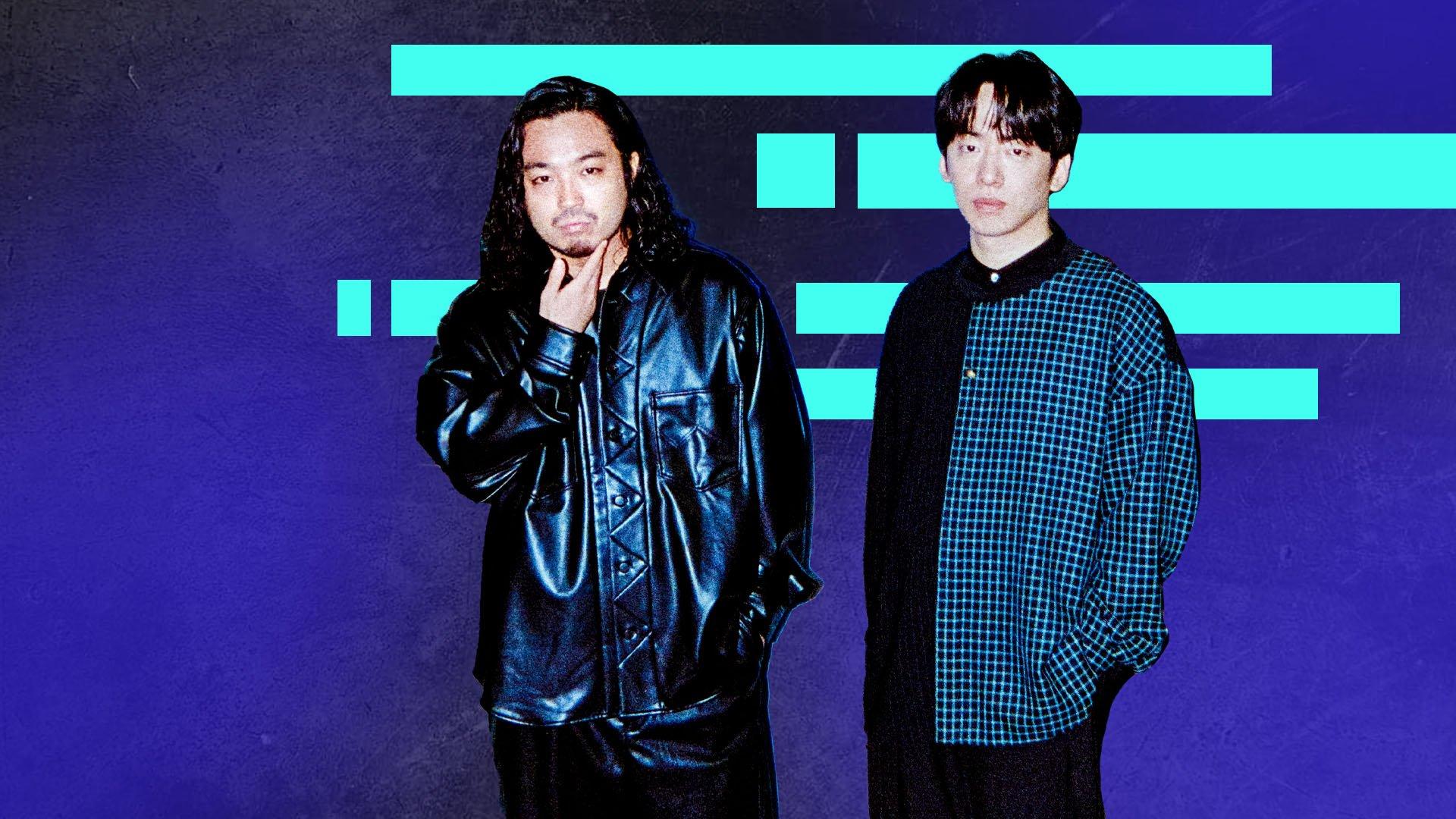
Photo: Courtesy of Creepy Nuts
video
Global Spin: Creepy Nuts Make An Impact With An Explosive Performance Of "Bling-Bang-Bang-Born"
Japanese hip-hop duo Creepy Nuts perform their viral single "Bling-Bang-Ban-Born," which also appears as the opening track from the anime "Mashle: Magic and Muscles."
On their new Jersey club-inspired single "Bling-Bang-Bang-Born," Japanese hip-hop duo Creepy Nuts narrate the inner monologue of a confident man, unbothered by others’ negativity and the everyday pressures of life.
In this episode of Global Spin, watch Creepy Nuts deliver an electrifying performance of the track, made more lively with its bright flashing lights and changing LED backdrop.
"Before I show them my true ability/ My enemies run away without capability," they declare in Japanese on the second verse. "Raising the bar makes me very happy/ ‘Cause I’m outstanding, absolutely at No.1."
"Bling-Bang-Bang-Born" was released on January 7 via Sony Music and also serves as the season two opening track for the anime "Mashle: Magic and Muscles." The song previously went viral across social media for its accompanying "BBBB Dance."
"Basically, the song is about it’s best to be yourself, like flexing naturally. Of course, even though we put effort into writing its lyrics and music, it’s still a song that can be enjoyed without worrying about such things," they said in a press statement.
Press play on the video above to watch Creepy Nuts’ energetic performance of "Bling-Bang-Bang-Born," and don’t forget to check back to GRAMMY.com for more new episodes of Global Spin.
From Tokyo To Coachella: YOASOBI's Journey To Validate J-Pop And Vocaloid As Art Forms
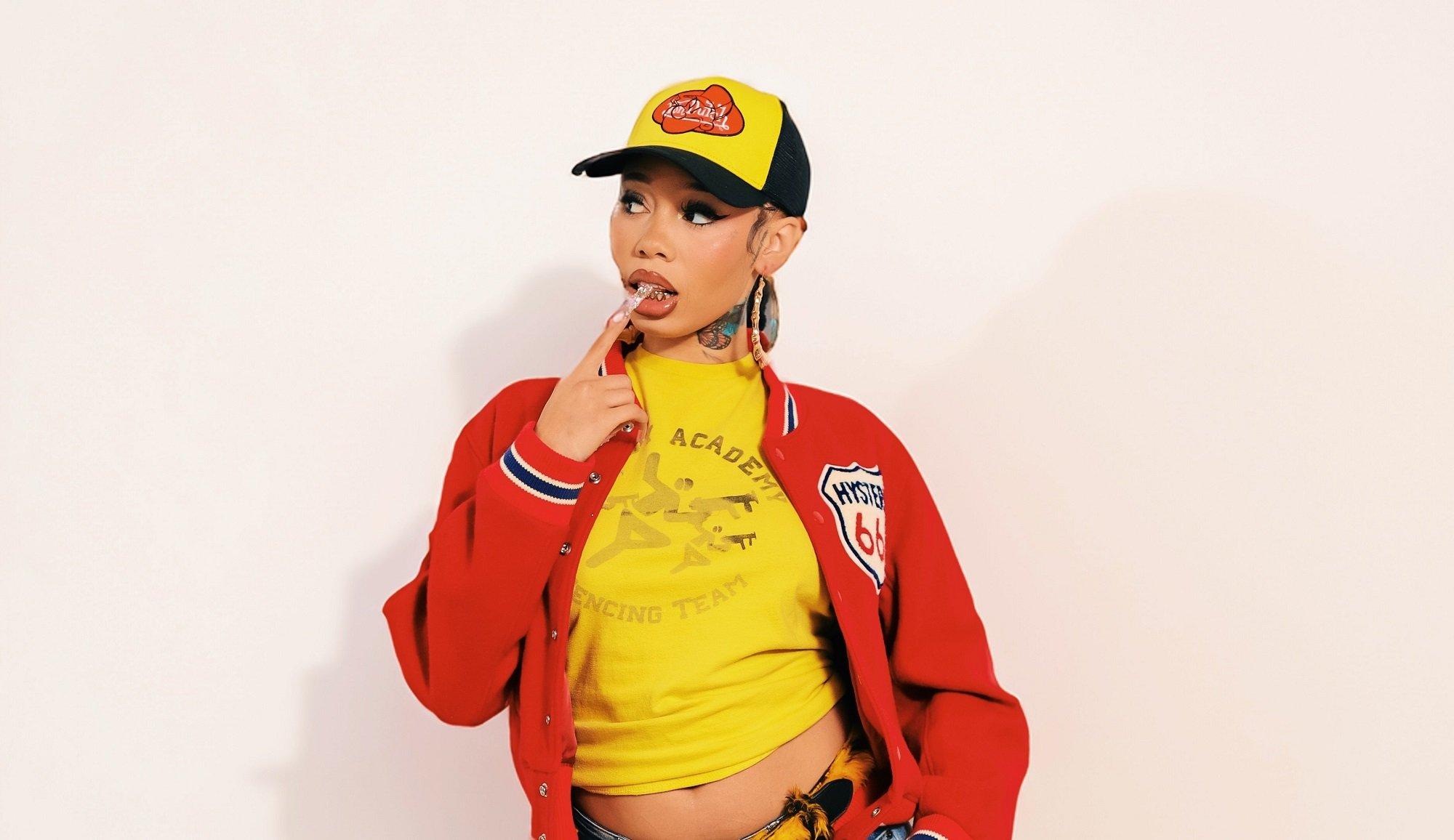
Photo: Apex Visions
interview
On 'Princess Pop That,' Rapper Anycia Wants You To Feel Like "The Baddest Bitch"
"It's a no judgment zone," Anycia says of her new album. The Atlanta rapper discusses the importance of maintaining individuality, and using her music for healing.
Twenty-six-year-old rapper Anycia truly lives in the present. The Atlanta-born artist describes her most viral hits as if they were everyday experiences — she's simply going out of town on "BRB" and mad at a partner in "Back Outside" featuring Latto.
Despite her calm demeanor and cadence, Anycia is a self-proclaimed "firecracker" and credits her success to her long-held confidence.
"I [command] any room I walk in, I like to introduce myself first — you never have to worry about me walking into the room and not speaking," Anycia tells GRAMMY.com. "I speak, I yell, I twerk, I do the whole nine," adding, "I see tweets all the time [saying] ‘I like Anycia because she doesn’t rap about her private parts’... are y’all not listening?"
With authenticity as her cornerstone, Anycia's genuine nature and versatile sound appeal broadly. On her recently released sophomore LP, Princess Pop That, Anycia's playful personality, unique vocal style and skillful flow are on full display. Over 14 tracks, Anycia keeps her usual relaxed delivery while experimenting with different beats from New Orleans, New York, California, and of course, Georgia.
"I'm learning to be myself in different elements. I'm starting to take my sound and make it adapt to other beats and genres," she says. "But this whole album is definitely a little showing of me dibbling and dabbling.
The rising hip-hop star gained traction in June 2023 with her sultry single, "So What," which samples the song of the same name by Georgia natives Field Mob and Ciara. When Anycia dropped the snippet on her Instagram, she only had a "GoPro and a dream." Today, she has millions of views on her music videos, collaborations with artists like Flo Milli, and a critically acclaimed EP, Extra. On April 26, she'll release her debut album, Princess Pop That, featuring Cash Cobain, Luh Tyler, Kenny Beats, Karrahbooo and others.
Ahead of the release of Princess Pop That, Anycia spoke with GRAMMY.com about her influences, maintaining individuality, working with female rappers, and using her music as a therapeutic outlet.
This interview has been edited and condensed for clarity.
Where did the title Princess Pop That come from?
Princess Pop That is my little alter ego, and my Twitter and finsta name. It's kind of like a Sasha Fierce/Beyoncé type of situation.
The cover of your album gives early 2000 vibes. Is that where you draw most of your inspiration from?
Yeah. My everyday playlist is literally early 2000s music. I even still listen to [music] from the '70s – I just like old music!
My mom is a big influence on a lot of the music that I like. She had me when she was like 19, 20. She's a Cali girl and has great taste in music. I grew up on everything and I feel like a lot of the stuff that I'm doing, you can kind of see that influence.
I grew up on Usher, Cherish, 112, Jagged Edge, Bone Thugs-N-Harmony, Teena Marie, Luther Vandross and Sam Cooke. Usher was my first concert, ever and actually my last concert — I went to his residency in Vegas with my mom. That's like our thing.
I know you had your hand in many different professions — including barbering and working at a daycare — how did you get into rapping?
I always liked music, but [thought] girl, we need some money right now. Rapping and music is cool, but I always had one foot in and one foot out. When I was [working] my jobs, it was more this is what I need to be doing right now — but I wasn't happy.
It got to a point where I noticed that I was doing all these things, and it worked but it wasn't working for me. I didn't want to get caught up; I didn't want to be stuck doing something just because it works. I wanted to do something that I actually love to do. I decided to quit both jobs because I was literally making me miserable.
I feel like that's what happened with a lot of our parents — they lose focus of their actual goals or what they actually wanted to do, and they get so caught up in what works in the moment. One thing about me, if I don't like something I'm done. I don't care how much money I put into it, if I'm not happy and it doesn’t feed me spiritually and mentally I'm not doing it. Right after [I quit] I was in the studio back-to-back making music. It eventually paid off.
Walk us through your music making process.
A blunt, a little Don Julio Reposado, a space heater because I’m anemic. Eating some tacos and chicken wings or whatever I’m feeling at the moment. It’s not that deep to me, I like to be surrounded by good energy in the studio.
People like to say female rappers aren’t welcoming or don’t like to work with each other. You’re clearly debunking this myth with songs like "Back Outside" featuring Latto and "Splash Brothers'' featuring Karrahbooo. What was it like working with them and how did these collaborations come about?
Karrahbooo and I were already friends before we started rapping. It was harder for people to get us to do music because when we were around each other we weren't like, "Oh we need to do a song together." We had a friendship.
Working with Latto, we didn't collab on that song in the studio. I did the song myself after being really upset at a man. I made the song just venting. I didn't even think that I was ever gonna put that song out, honestly. Latto ended up hitting me up within a week's span just giving me my flowers and telling me she wanted to do a song [together]. I ended up sending her "Back Outside" because I felt like she would eat [it up] and she did just that.
She did! Are there any other female rappers you’d like to work with?
I really want to work with Cardi B — I love her! I'm also looking forward to collaborating with GloRilla.
Read more: A Guide To Southern Hip-Hop: Definitive Releases, Artists & Subgenres From The Dirty South
Many female rappers come into the industry and feel like they have to start changing themself to fit a certain aesthetic or archetype. However, everything about you seems super unique — from your voice to your style and appearance. How do you maintain your individuality?
Being yourself is literally the easiest job ever. When you're doing everything you're supposed to be doing, you're being genuine while you're doing it and you’re just being 110 percent authentically yourself — I feel like everything works out for you perfectly fine.
I haven't had the urge to change anything or do anything different. The reason people started liking me was because I was being myself. Even if it wasn't accepted, I'm not going to stop being myself. I do what works for me and I feel like everybody should just do what works for them and not what works for the people outside of them.
That's what creates discomfort for yourself, that’s how you become a depressed artist — trying to please everybody [but] yourself. I feel like people lose sight of that fact. Aside from this being a job or a career for me now, it’s still my outlet and a way I express myself; it's still my form of art. I will never let anybody take that from me. It's intimate for me.
Speaking of intimacy, what was the inspiration behind "Nene’s Prayer"? I want to know who was playing with you.
I was just having a little therapy session in the booth and everyone ended up liking it. Instead of getting mad, flipping out and wanting to go to jail I just put in a song. Even though I said some messed up things in the song, it’s better than me doing those messed up things.
Have you ever written a lyric or song that you felt went too far or was too personal?
Nope. A lot of the [topics] that I [rap about] is just stuff girls really want to say, but don't have the courage to say. But me, I don’t give a damn! If it resonates with you then it does, and if it doesn't — listen to somebody else.
Exactly! What advice would you give to upcoming artists trying to get noticed or have that one song that pops?
If you got something that you want to put out into the world, you just have to have that confidence for yourself, and you have to do it for you and not for other people. I feel like people make music and do certain things for other people. That's why [their song] doesn't do what it needs to do because it’s a perspective of what other people want, rather than doing [a song] that you're comfortable with and what you like.
How do you want people to feel after listening to ‘Princess Pop That?’
I just want the girls, and even the boys, to get in their bag. Regardless of how you went into listening to the album, I want you to leave with just a little bit more self confidence. If you’re feeling low, I want you to feel like "I am that bitch."
It's a no judgment zone. I want everybody to find their purpose, walk in their truth and feel like "that girl" with everything they do. You could even be in a grocery store, I want you to feel like the baddest bitch.
10 Women In African Hip-Hop You Should Know: SGaWD, Nadai Nakai, Sho Madjozi & More
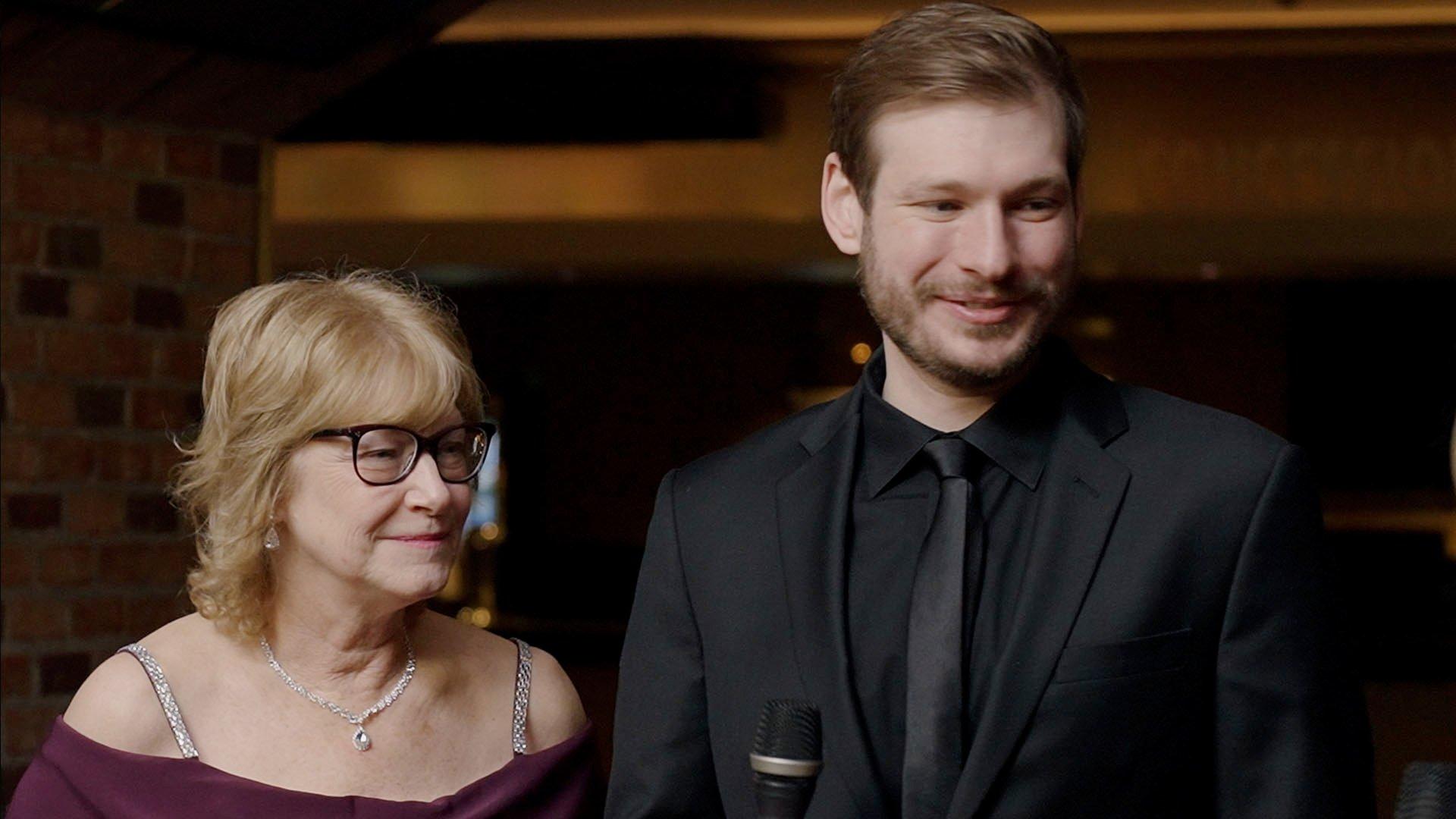
Photo: Screenshot from video
video
Family Matters: How Mike Piacentini’s Family Fuels His Success As His Biggest Champions
Mastering engineer Mike Piacentini shares how his family supported his career, from switching to a music major in college to accompanying him to the GRAMMY ceremony for his Best Immersive Album nomination.
Since Mike Piacentini’s switch from computer science to audio engineering in college, his family has been his biggest champions. So, when he received his nomination for Best Immersive Album for Madison Beer's pop album Silence Between Songs, at the 2024 GRAMMYs, it was a no-brainer to invite his parents and wife.
“He’s always been into music. He had his own band, so [the shift] wasn’t surprising at all,” Piacentini’s mother says in the newest episode of Family Matters. “He’s very talented. I knew one day he would be here. It’s great to see it actually happen.”
In homage to his parents’ support, Piacentini offered to let his father write a short but simple acceptance in case he won: “Thank you, Mom and Dad,” he jokes.
Alongside his blood relatives, Piacentini also had support from his colleague Sean Brennan. "It's a tremendous honor, especially to be here with [Piacentini]. We work day in and day out in the studio," Brennan explains. "He's someone who's always there."
Press play on the video above to learn more about Mike Piacentini's support system, and remember to check back to GRAMMY.com for more new episodes of Family Matters.
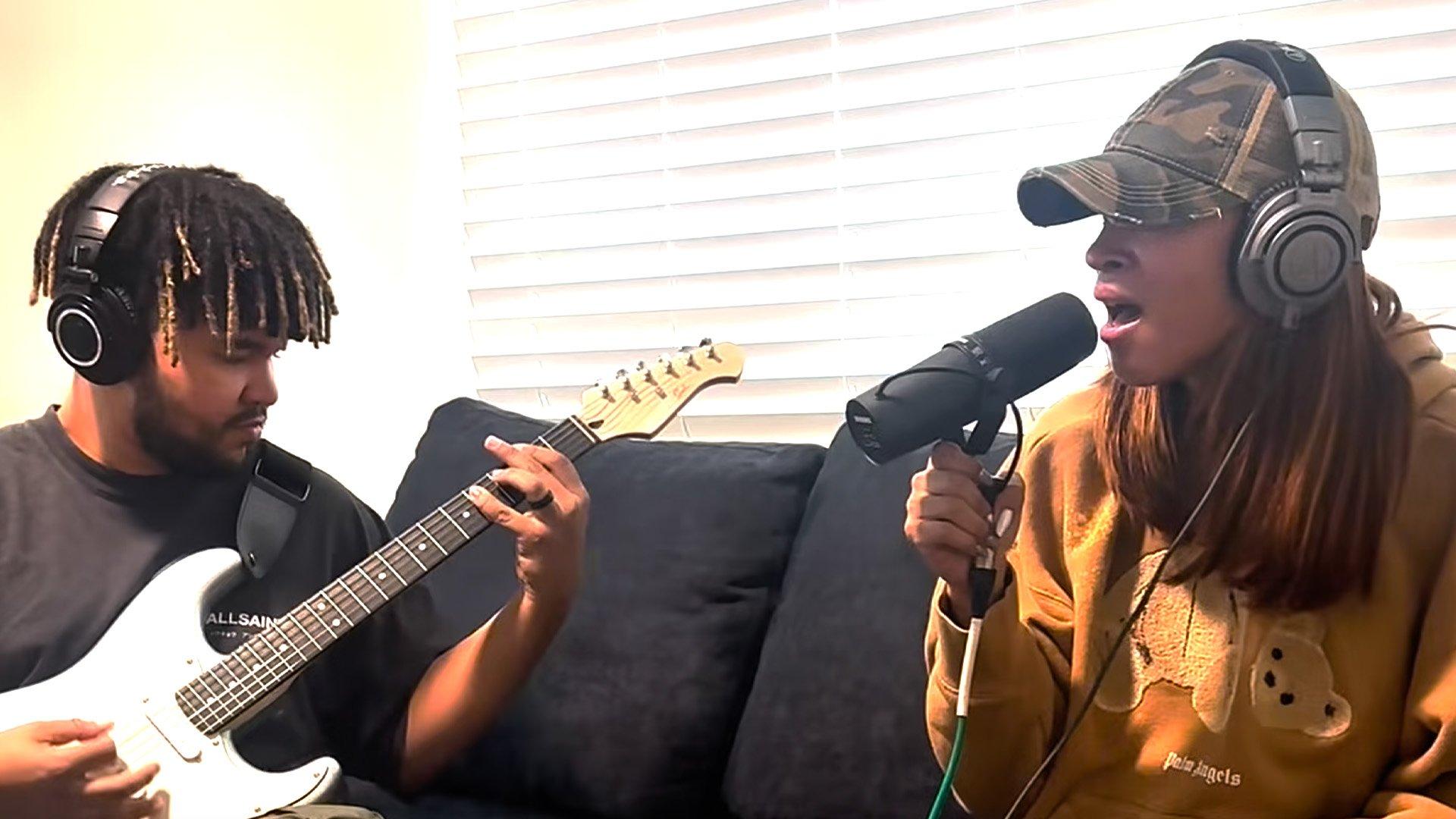
Photo: Courtesy of Genia
video
Press Play: Watch Genia Narrate The Pain Of Heartbreak In This Raw Performance Of "Dear Life"
R&B singer Genia offers an acoustic rendition of "Dear Life," one of the singles from her forthcoming mixtape, '4 AM In The Ville,' out April 19 via Def Jam.
On "Dear Life," R&B singer Genia pens a farewell letter to her lover — while simultaneously reflecting on how the intense saga crumbled her.
"I can't take anymore/ Put my pride aside, thought you could save me," she cries in the first verse. "These days, I don't know what I need/ You destroy me from the inside out/ If I go off the deep end/ You'll be sure not to bring me back."
In this episode of Press Play, watch Genia deliver a stripped-down performance of the vulnerable track alongside her guitarist.
The California native released "Dear Life" on Nov. 10, via Def Jam Recordings. She has also dropped three more singles — "Like That," "Know!," and "Let Me Wander" — leading up to her sophomore mixtape, 4 AM In The Ville, on April 19. 4 AM is a sequel to her debut, 4 PM In The Ville; both projects are inspired by Genia's experience of growing up in Victorville, California.
""[The songs] explore the different stages of grief in a relationship," she revealed in an interview with Urban Magazine. "The second tape is really me touching on falling in love, betrayal, anger, and rape."
Watch the video above to hear Genia's acoustic performance of "Dear Life," and check back to GRAMMY.com for more new episodes of Press Play.
